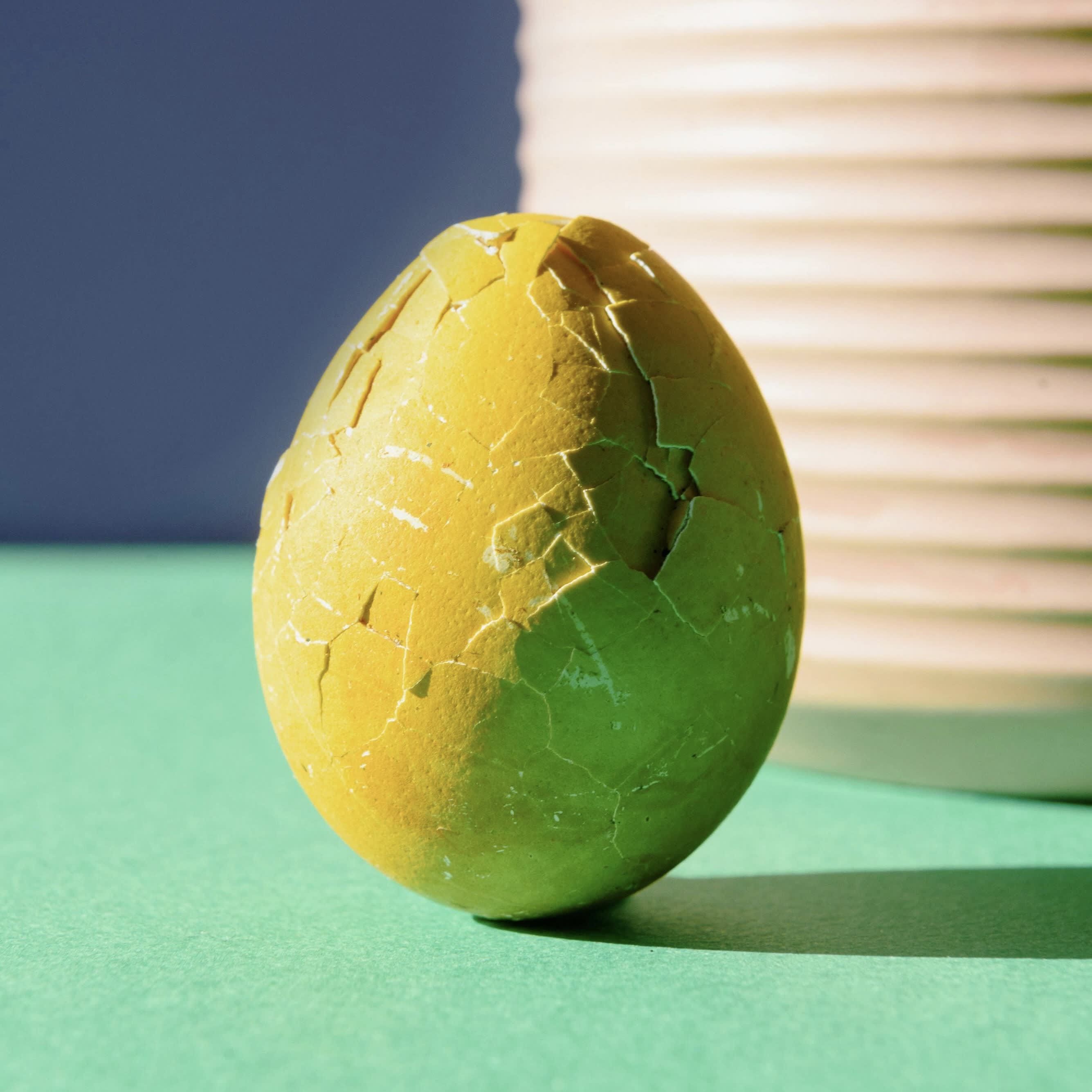How To Tell If Eggs Are Bad & How Long Do They Last?
How To Tell If Eggs Are Bad & How Long Do They Last?
Eggs: they're a staple in nearly every kitchen, but just when you're ready to crack one open, you pause—how long has that carton been sitting in the fridge? No one wants the morning ruined by a bad egg.
We're all about making sure every part of your meal is fresh and tasty, so let’s crack the code on how to tell if your eggs are still good to go and how to keep them that way. From the fridge to the frying pan, knowing how to check your eggs for freshness can save the day and your breakfast.
Read on to get the scoop on how you can keep your eggs—and your meals—up to snuff.

What's So Special About Eggs?
First things first, what’s the big deal with eggs? These little wonders are a marvel of nature. Not only are they among the most versatile foods on the planet—ready to be whisked into an omelet, tucked into a sandwich, or transformed into a cloud-like meringue—but they’re also nutritional powerhouses.Packed with protein and essential nutrients, eggs can elevate any meal, not just your morning scramble. They blend seamlessly into nearly every cuisine and bring simplicity and richness to your plate with minimal effort.
So, whether you're baking a cake or whipping up a quick stir-fry, eggs are there to make every dish a little better.
How Long Do Eggs Last?
Found yourself staring at an egg carton, pondering if those eggs are still safe to eat? You're not alone. Typically, fresh eggs can comfortably sit in your fridge for three to five weeks from the purchase date.
But while the dates on the carton are helpful, keep in mind that they’re just guidelines—properly stored eggs can often last a little beyond those dates without a problem. Knowing what signs to watch for helps you decide when they’re still good to use and when it’s best to toss them.

How Long Are Hard-Boiled Eggs Good For?
Once you've boiled your eggs, the clock starts ticking a bit faster. Hard-boiled eggs, when kept in their shells and stored in the fridge, can last about a week.Remember, peeling them shortens their fridge life. So, if you're prepping snacks for the week or planning a picnic, keep those shells on until you're ready to eat. This little trick helps keep moisture and flavor locked in while fending off odors from other foods in your fridge.
How To Tell If Eggs Are Good or Bad
Not sure if your eggs have gone bad? There's no need to play a guessing game when it comes to egg freshness.
Here are some straightforward tests and tips to help you determine whether your eggs are still good to enjoy or better off in the trash.
The Water Test
One of the easiest ways to check an egg's freshness is the water test. Fill a bowl with cold water and gently place your eggs in it.
Fresh eggs will sink to the bottom and lay flat on their sides, indicating they're still good. If an egg stands upright on the bottom, it's still safe to eat, but it should be used soon. Floating eggs are a no-go—they're not fresh and should be discarded.
Check for Smells
Sometimes, the sniff test is the best test. Crack the egg onto a clean plate or bowl and give it a good sniff. Fresh eggs will have a mild smell or no smell at all. If you catch a whiff of anything sour or foul, it's a clear sign that the egg has gone bad and should not be used.
Visual Inspection
Before you crack them open, inspect your eggs for any signs of dirt, cracks, or unusual discoloration. A clean, intact shell is a good indicator of a fresh egg.
Once cracked, look closely at the yolk and the white. The yolk should be round and firm, and the white should be clear and thick. Any spreading, watery appearance, or discoloration in the yolk or white might suggest the egg is older or spoiled.

What Happens If You Eat a Bad Egg?
If the signs weren't apparent before you dug in, and you've accidentally eaten a bad egg, don't panic. Most of the time, your body is quite resilient and can handle a slip-up now and then.
Here's what you might expect and some simple steps to take:
- Mild discomfort: It's common to experience some digestive discomfort, like a stomach ache or nausea, if you eat a bad egg. This is usually short-lived, and sipping on some water or a mild tea can help settle your stomach.
- Watch for symptoms of food poisoning: In more severe cases, such as when the egg was contaminated with bacteria like Salmonella, symptoms could escalate to diarrhea, fever, and vomiting. These symptoms typically develop within six to 48 hours after eating and can last a few days.
- Stay hydrated: If you're experiencing vomiting or diarrhea, it's crucial to stay hydrated. Drink plenty of fluids, and if you're struggling to keep liquids down, try small sips frequently instead of large amounts at once.
- When to seek help: If symptoms are severe or don't improve within a day or two, it's wise to consult a healthcare provider. This is especially important for young kids, the elderly, or anyone with a weakened immune system, as they're more vulnerable to the effects of foodborne illnesses.
Remember, while it's unpleasant, eating a bad egg isn't typically a cause for alarm. Just take it easy, monitor your symptoms, and in most cases, you'll be back to feeling normal in no time.
How Can You Extend the Life of Your Eggs?
So, you've stocked up on eggs—how do you keep them fresh as long as possible? Whether you're a baking buff or just love a good scramble, ensuring your eggs stay in prime condition can make all the difference in your cooking.
Keep these tips in mind to help you maximize the shelf life of your eggs:
Store Them Right
It starts with how you stash them away. Skip the egg holder on the fridge door; it’s actually not the best spot due to the constant temperature changes from opening and closing the fridge.
Instead, keep your eggs in their original carton on a shelf toward the back of the fridge where the temperature stays cooler and more constant. The carton not only prevents the eggs from absorbing odors but also keeps them from bumping into each other.
Keep Them Cool
Maintaining a steady, cool temperature is crucial. Set your refrigerator below 40°F (4°C) to keep the eggs happy.
Any warmer, you start flirting with the danger zone where bacteria like to party. And remember, eggs don’t take kindly to room temperature, so avoid leaving them out for more than two hours.
First In, First Out
Play it smart with a simple rotation system: use the oldest eggs first. This "First In, First Out" strategy keeps things fresh. Mark the purchase date on the carton, or keep your eggs organized so you know which ones to crack into first. This way, none of your eggs go to waste.
Don't Store Eggs With Strong Odor Foods
Eggs can absorb flavors and odors from strong-smelling foods like onions, garlic, or fish. If possible, store these items away from your eggs to keep unwanted flavors from transferring through the porous eggshells.
Consider Freezing Them
Yes, you can freeze eggs! If you’re looking at a surplus, crack them open and beat them together.
Pour the mixture into an ice cube tray or a freezer-safe container. This method is perfect for when you’re ready to cook scrambled eggs or bake. Just remember, thaw them in the fridge a day before you need them.
Regularly Check for Cracked Eggs
Make it a routine to check for cracked eggs. Even a small crack can let bacteria in and spoil the egg quickly. If you find a cracked egg, it's best to use it right away—if it still smells and looks okay—or discard it to avoid any risk of contamination.
Avoid Washing
If you get eggs straight from a farm, they might come with a bit of dirt. Resist the urge to wash them until you’re ready to use them. Washing can remove the protective bloom that coats the shell and keeps out bacteria.